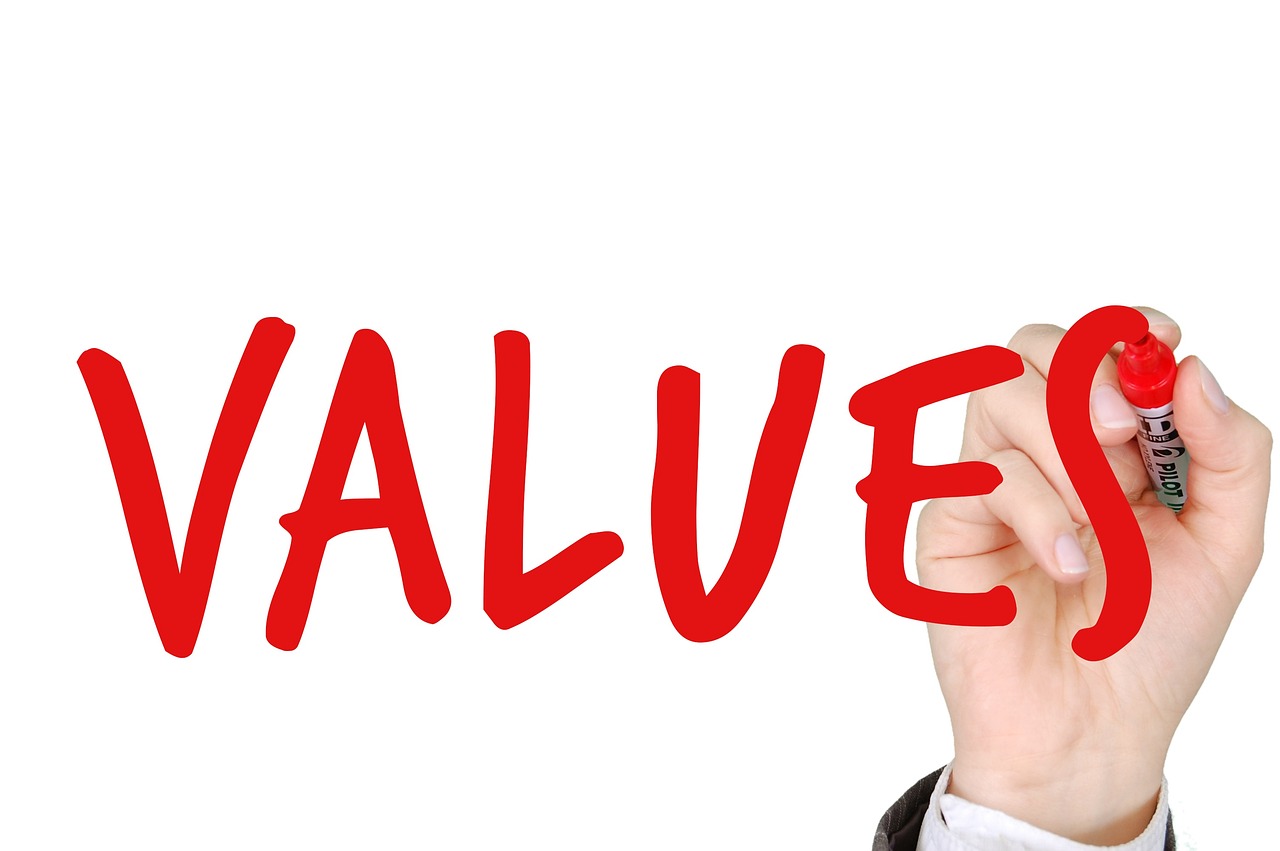Leadership values are at the core of the leadership diet and the guiding principles in our lives. What we value as leaders is typically displayed through our communications, behaviors, initiatives, and accomplishments. These values are a representation of our intentions and our integrity, and what is truly important to us as leaders. However, our true values are displayed through our daily interactions and behaviors.

As leaders, our purpose is to guide others to accomplish desired outcomes. Think of your leadership values as those characteristics which you consider the most important to help motivate and guide others to accomplish the desired outcomes. I often find that what people hold as core values stem from deeply held beliefs and authentically define who they are at their core.
The leadership values you display transcend your organization and those you lead, and will impact the performance of your organization, and ultimately its overall culture.
I often ask leaders to assess and define their leadership values statement. When leaders adopt a values statement it provides them with clarify around who they are, what is important to them, and what vision they are working towards. This can be accomplished with a simple exercise of writing a leadership values statement. This exercises forces them to assess what kind of leader they are and what kind of leader they want to be. When I completed this exercise, the leadership value statement that I adopted was to . . .
To lead with honesty, integrity, and respect; And to teach with wisdom, patience, and compassion.
Cheryl Miller
I challenge you to write your own leadership values statement. Here are some steps for an easy exercise you can follow to write a meaning leadership values statement.
Step 1: Review the list of “value” words listed below and sort them into 3 categories 1) those that you “always value”, 2) those that you “often value”, and 3) those that you “value least”. The trick is, that you cannot sort more than five words in the “always value” category.
Step 2: Select three out of the five “value” words you sorted into the “always value” category and construct a statement of what you value. You may want to expand it to include the why, what, when or where these values are important to you.
Step 3: Write down you values statement. Post it, read it daily, share it with others, display behaviors consistent with these values, and/or adopt any other strategies which may motivate you to lead in a way aligned with your values statement
Value Words
Honesty – Expressing only the truth
Respectful – Regarding others with honor and consideration
Integrity – Your actions match your beliefs
Competence – Being good at what I do, capable, effective
Perseverance – Staying with tasks through completion
Challenge – Testing your limits physically
Knowledge – Continuous learning, looking for intellectual stimulation
Health – Tending to physical and mental well-being
Teamwork – Collaborating with others to reach
Self-Esteem – Accepting and respecting yourself
Inner Harmony – Seeking inner peace and integration
Family – Attending to and enjoying time with loved ones
Helping – Reaching out to meet other’s needs
Communication – Open exchange of views
Personal Growth – Committed to a process of ever developing self-awareness and skills
Self Control – Restraint, able to discipline self
Tolerance – Respecting those different from you
Achievement – Visible evidence of successfully completed endeavors
Fairness – Treating everyone equally, with respect
Stability – Dependability, able to predict experience
Rationality – Emotionally detached, clear logical thinking
Pleasure – Seeking enjoyment and delight
Creativity – Open to discovery of new ways, innovative
Friendship – On-going close relationships
Intimacy – Solid and deep emotional relationship
Spiritual Growth – Connection to a higher purpose, devine presence
Intellectual Status – Being seen as a knowledgeable expert
Safety – Security, free from risk and worry
Aesthetic – Respect for beauty and artistry
Consensus – Forming decisions everyone can support
Appearance – Taking care of looks, dressing well and keeping in shape
Courageous – Standing up for what you believe in, even when risky
Peace – End of war, non-violent conflict resolution
Forgiveness – Capable of pardoning and moving on
Power – The ability to influence the behavior of myself and others
Diplomacy – Searching for common ground to resolve conflict
Belonging – Being accepted and liked by others
Recognition – Having others notice good work
Ecology – Taking care of the Earth
Advancement – Wanting to move up, get ahead
Prosperity – Able to afford things you want, well-off
Adventure – Taking risks, challenging yourself
Community – Close involvement with neighbors
Play – Doing just for fun, spontaneity
Neatness – Having things clean and in order
Tradition – Consideration for the way things have customarily been done
Authority – Steering the process, having power to direct events
Competition – “Beating” others, coming in first

